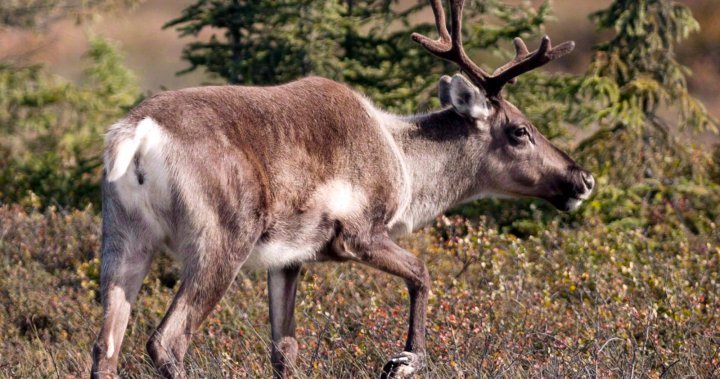
Threatened Quebec caribou herd expecting up to 12 calves this year
Global News
A biologist with the province's Wildlife Department confirmed all 12 of the herd's breeding-age females are believed to be pregnant, after tests showed high progesterone levels.
A caribou herd in Charlevoix, Que., could be heading toward a baby boom this year, providing a rare bit of good news for the province’s decimated population.
Caroline Hins, a biologist with the province’s Wildlife Department, confirmed all 12 of the herd’s breeding-age females are believed to be pregnant, after tests that showed high progesterone levels.
“It’s very good news,” she said in an interview Friday.
She said that if all the pregnancies are carried to term and the calves survive — and there’s no guarantee of that — the herd northeast of Quebec City will have doubled in size in a year and a half.
The Quebec government captured the herd, then numbered at 16, and placed it in an enclosure in February 2022 as part of a controversial plan to prevent isolated herds from dying out. Five healthy calves were born last year, out of eight presumed pregnancies.
The government has argued that enclosing caribou represents their best chance of survival, offering protection from predation and ensuring they have access to food, water and veterinary care. But environmentalists have criticized the government for putting the animals behind fences rather than protecting and restoring their old-growth forest habitat and presenting a long-promised master plan to rebuild the species.
The government has described the fencing approach as temporary, and Hins says the birth of new caribou raises hopes that the herd will one day be able to be released back into the wild. However, she could not give a timeline for when that could happen.
She said a lot of work still needs to be done, with habitat protection and restoration at the top of the list. Details of that habitat restoration will come in the province’s caribou action plan, which is now expected to be released in June after years of delay. Among other things, the plan needs to prevent logging in some areas, control predators and close down logging roads to restore habitat, Hins said.











